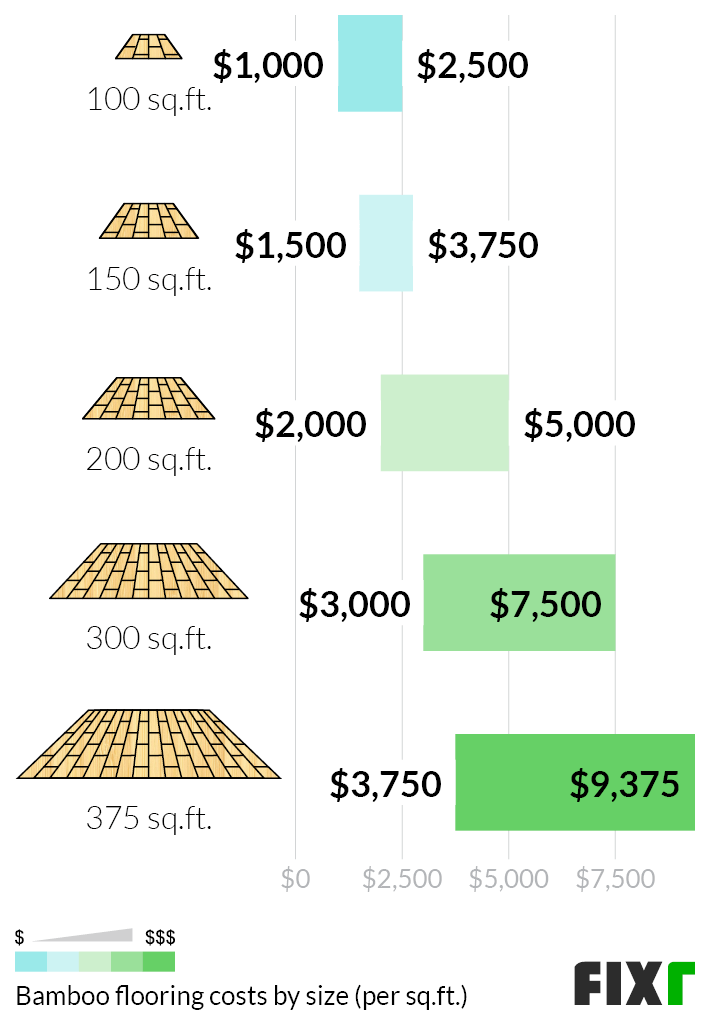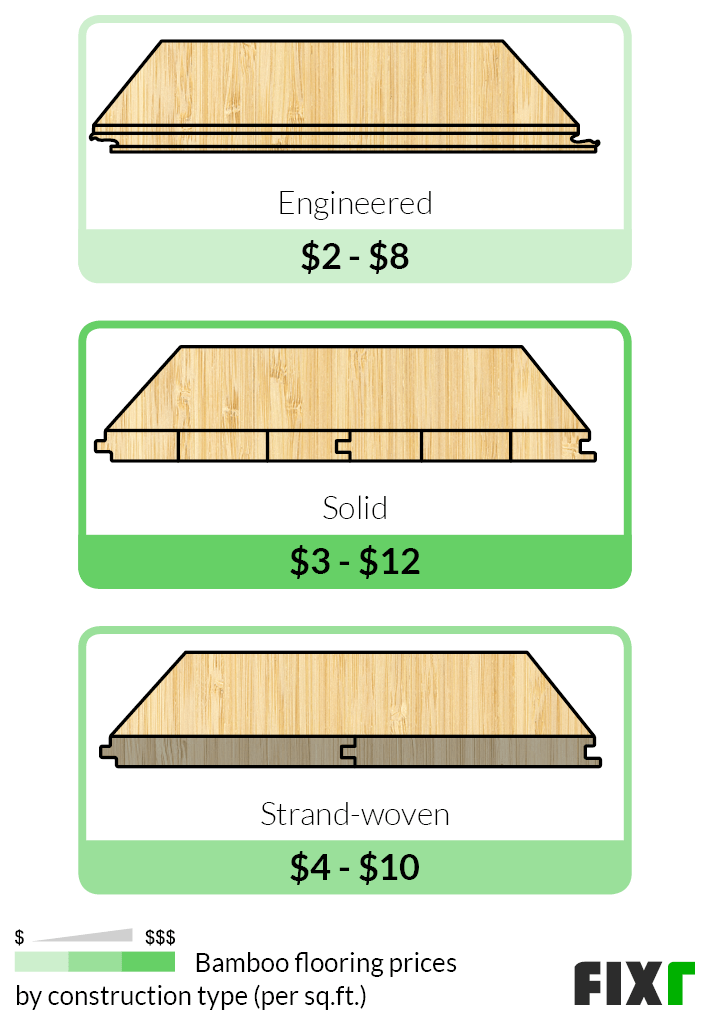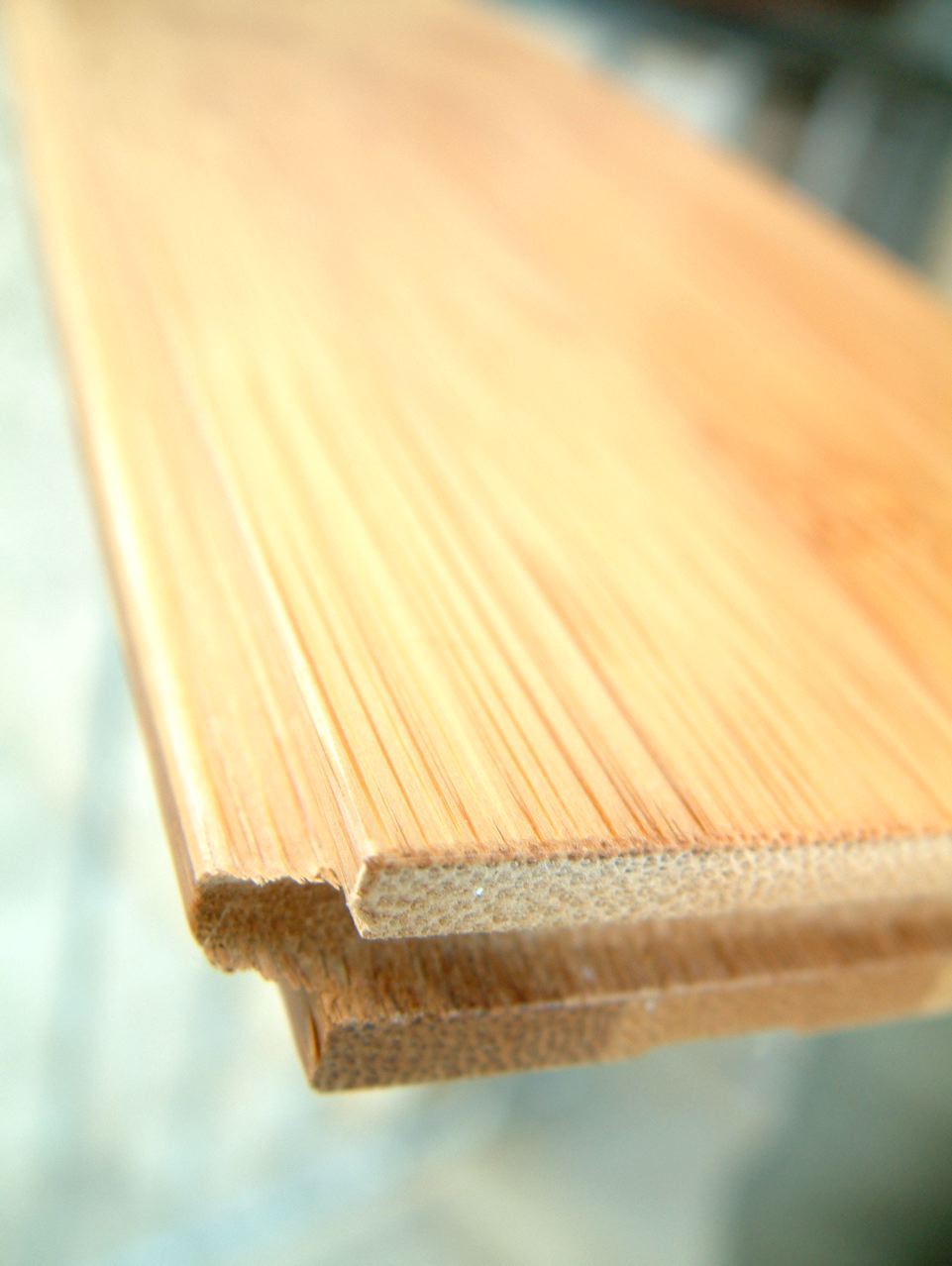Bamboo flooring has gained popularity as a sustainable and stylish alternative to traditional hardwood. Its durability, eco-friendliness, and aesthetic appeal make it an attractive choice for homeowners. Understanding the basics of bamboo flooring can help you make an informed decision about whether it’s the right option for your home.
- Sustainability: Bamboo is a rapidly renewable resource, making it an environmentally friendly flooring option. Unlike traditional hardwood trees, which can take decades to mature, bamboo can be harvested in as little as three to five years. This rapid growth rate helps reduce deforestation and promotes sustainable forestry practices.
- Durability: Bamboo flooring is known for its durability and strength. When properly manufactured and installed, it can be just as hard and resilient as traditional hardwoods. There are different types of bamboo flooring, such as strand-woven bamboo, which is particularly robust and resistant to wear and tear.
- Aesthetic Appeal: Bamboo flooring offers a unique and elegant look that can complement various interior styles. Its natural grain patterns and color variations add warmth and character to any space. Bamboo can also be stained or carbonized to achieve different shades, from light natural tones to darker, richer hues.
- Installation Methods: Bamboo flooring can be installed in several ways, including nail-down, glue-down, and floating methods. The choice of installation method depends on the type of bamboo flooring and the subfloor conditions. Each method has its advantages and specific requirements, so it’s essential to choose the one that best suits your needs.
- Maintenance: Maintaining bamboo flooring is relatively straightforward. Regular sweeping or vacuuming, along with occasional damp mopping, is usually sufficient to keep it clean. However, it’s important to avoid excessive moisture, as bamboo can be susceptible to water damage. Using mats and area rugs in high-traffic areas can also help protect the flooring from scratches and dents.
- Cost Considerations: Bamboo flooring can be a cost-effective alternative to traditional hardwoods. While the price can vary depending on the type and quality of bamboo, it is generally more affordable than many hardwood options. Additionally, the long-term benefits of bamboo flooring, such as its durability and low maintenance, can make it a worthwhile investment for homeowners.

Types of Bamboo Flooring and Their Costs
Bamboo flooring comes in several types, each with its unique characteristics and cost considerations. Understanding these differences can help you choose the best option for your budget and design preferences. Here are the main types of bamboo flooring and their associated costs:
Horizontal Bamboo Flooring: This type of bamboo flooring is made by gluing horizontal strips of bamboo together, creating a wider grain pattern that showcases the natural beauty of bamboo. Horizontal bamboo flooring typically costs between $2 and $5 per square foot, making it an affordable option for many homeowners.
Vertical Bamboo Flooring: Vertical bamboo flooring is constructed by stacking vertical strips of bamboo side by side and gluing them together. This process creates a more uniform and linear grain pattern. The cost of vertical bamboo flooring is similar to that of horizontal bamboo, ranging from $2 to $5 per square foot.
Strand-Woven Bamboo Flooring: Strand-woven bamboo is the most durable and resilient type of bamboo flooring. It is made by compressing shredded bamboo fibers with resin, resulting in a dense and hard material. Strand-woven bamboo flooring is more expensive, typically costing between $3 and $8 per square foot, but its exceptional durability can justify the higher price.
Engineered Bamboo Flooring: Engineered bamboo flooring consists of a thin layer of bamboo veneer bonded to a plywood or fiberboard core. This construction provides added stability and resistance to moisture. Engineered bamboo flooring costs between $3 and $7 per square foot, depending on the thickness and quality of the bamboo veneer.
Carbonized Bamboo Flooring: Carbonized bamboo undergoes a heating process that darkens the bamboo and gives it a richer color. This process can slightly reduce the hardness of the bamboo, but it creates a warm and inviting appearance. Carbonized bamboo flooring typically costs between $2 and $6 per square foot.
Unfinished vs. Pre-Finished Bamboo Flooring: Bamboo flooring is available in both unfinished and pre-finished options. Unfinished bamboo flooring allows for customization with stains and finishes but requires additional labor and materials. Pre-finished bamboo flooring comes ready to install, with a factory-applied finish that saves time and effort. The cost difference between unfinished and pre-finished bamboo flooring is usually minimal, with pre-finished options being slightly more expensive.
Factors Influencing Bamboo Flooring Installation Costs
Several factors can influence the overall cost of installing bamboo flooring. Understanding these factors can help you budget effectively and make informed decisions. Here are some key considerations that can affect the cost of bamboo flooring installation:
Type of Bamboo Flooring: The type of bamboo flooring you choose will significantly impact the installation cost. Strand-woven bamboo, for example, is more expensive due to its higher durability and complex manufacturing process. Engineered bamboo flooring may also have different installation requirements compared to solid bamboo, affecting labor costs.
Square Footage: The total area to be covered plays a crucial role in determining the installation cost. Larger areas will require more materials and labor, leading to higher overall costs. Some contractors may offer discounts for larger projects, so it’s worth inquiring about potential savings.
Subfloor Condition: The condition of your subfloor can affect the significant preparation, such as leveling, repairing, or adding a moisture barrier, the installation cost will increase. A smooth, clean, and dry subfloor is essential for a successful bamboo flooring installation, and any additional work needed to achieve this can add to the overall expense.
Installation Method: The method used to install the bamboo flooring can also impact the cost. Nail-down and glue-down methods typically require more time and skill, resulting in higher labor costs. Floating floor installations, where the bamboo planks are not attached to the subfloor, are often quicker and less expensive, but they may not be suitable for all types of bamboo flooring.
Geographic Location: Labor costs can vary significantly depending on your geographic location. In areas with a higher cost of living, you can expect to pay more for professional installation services. It’s important to get multiple quotes from local contractors to compare prices and ensure you’re getting a fair deal.
Additional Services: Additional services such as removing existing flooring, disposing of old materials, and moving furniture can add to the installation cost. If your project requires these services, be sure to discuss them with your contractor and include them in your budget.
Average Cost Breakdown for Bamboo Flooring Installation
When planning your bamboo flooring project, it’s helpful to understand the average cost breakdown to get a clear picture of where your money will be spent. Here’s a general overview of the typical costs involved in bamboo flooring installation:
Material Costs: The cost of bamboo flooring materials can vary widely depending on the type and quality of the bamboo. On average, you can expect to pay between $2 and $8 per square foot for bamboo flooring. Higher-end options, such as strand-woven bamboo, tend to be more expensive but offer greater durability.
Labor Costs: Labor costs for installing bamboo flooring can range from $3 to $10 per square foot, depending on the complexity of the installation and the local labor rates. Nail-down and glue-down methods generally require more time and expertise, resulting in higher labor costs compared to floating floor installations.
Subfloor Preparation: Preparing the subfloor is a crucial step that can add to the overall cost. This may include leveling the subfloor, repairing any damage, and adding a moisture barrier. Subfloor preparation costs can range from $1 to $3 per square foot, depending on the extent of the work needed.
Additional Materials: Additional materials such as underlayment, adhesives, and moldings will add to the total cost. Underlayment, which provides cushioning and noise reduction, can cost between $0.30 and $0.60 per square foot. Adhesives for glue-down installations can cost around $1 per square foot.
Removal of Existing Flooring: If you need to remove existing flooring, this will incur additional costs. The cost for removing old flooring can range from $1 to $3 per square foot, depending on the type of flooring and the difficulty of removal.
Finishing Touches: Finishing touches such as baseboards, trim, and transitions can add to the overall cost. These elements are necessary for a polished and professional look. The cost for these finishing touches can vary, but you can expect to pay an additional $1 to $2 per linear foot for materials and installation.
Bamboo Flooring Cost Cost to Install Per Square Foot
Commercial bamboo flooring price
Related Posts:
- Vintage Bamboo Flooring
- Bamboo Flooring In Kitchens
- Installing Solid Bamboo Flooring
- Cheap Bamboo Flooring
- Bamboo Flooring Durability Review
- Dark Brown Bamboo Flooring
- Scratch Resistant Bamboo Flooring
- Bamboo Floor Repair Dents
- Bamboo Patio Flooring
- Engineered Bamboo Flooring
How Much Does It Cost To Install Bamboo Flooring?
Bamboo flooring is a popular choice among homeowners searching for a stylish and sustainable flooring solution. It is a durable and low-maintenance option, making it an attractive option for both traditionally-styled and modern-minded homeowners. Nowadays, bamboo flooring is becoming increasingly more affordable too, which is great news for budget-conscious home renovators. But when it comes to installation, the cost of fitting bamboo flooring can vary quite significantly depending on the size of the room and the complexity of the installation itself. This article takes a look at the average cost associated with installing bamboo flooring in your home.
Materials Costs
When it comes to materials, bamboo flooring is not the cheapest option, compared to other types of hardwood such as laminate or vinyl. The type of bamboo you choose will also affect the price – carbonized bamboo tends to be more expensive than natural bamboo. On average, bamboo flooring costs between $3-$10 per square foot, with most installations averaging around $5-$7 per square foot. This doesn’t include the cost of adhesive or sealant, so it’s important to factor these additional costs into your budget when calculating total outlay.
Labor Costs
The main expense when installing bamboo flooring is in labor costs, with most contractors charging between $3-$7 per square foot for installation (plus any additional costs for tools and supplies). This covers the cost of measuring and cutting the bamboo strips, sanding, staining, sealing and even polishing the floor to a professional finish. Some contractors also include extra services in this fee like moving furniture and covering doorways to protect against dust or debris while they’re working.
Total Installation Costs
Taking into account both materials and labor costs, it’s safe to say that you should expect to pay anywhere between $6-$14 per square foot for a complete bamboo flooring installation. For a 200-square-foot room that would typically cost around $2,000-$3,000 for installation alone (not including any other renovation work or furniture moving). However, this figure can vary widely depending on the complexity of the installation (i.e. removing existing flooring or handling difficult corners or staircases) as well as any additional services that may need to be included.
Additional Considerations
If you’re considering DIY installation of bamboo flooring then there are several additional things you should keep in mind before taking on this type of project yourself. Firstly, it’s important to ensure that you buy enough material as most stores don’t allow returns on cut or customized materials such as bamboo strips. Secondly, you should also factor in any additional tools or materials that you may need for the job such as adhesive and sealant. Finally, if you do decide to take on installation yourself then make sure to wear protective clothing and safety equipment during the process to protect yourself from dust particles and splinters.
Is it easy to install bamboo flooring?
Installing bamboo flooring is easier than other types of hardwood floors due to its light weight and size. However, it does require some basic knowledge of construction techniques such as measuring and cutting each strip correctly, as well as applying adhesive properly. If done incorrectly it can create weak spots in your floor or cause warping over time due to incorrect moisture levels in each plank. It’s therefore advisable to hire a professional contractor if you’re unsure about installing this type of flooring yourself.
How long does it take to install bamboo flooring?
A: Professional contractors can typically complete a 200sqft room within one day depending on complexity of design and size of strips used (the bigger the planks, the faster they can cover the room). If DIY installation is chosen then it will take longer because you won’t have access to professional tools or experience in cutting and fitting planks correctly.
Are there any special considerations when installing bamboo flooring?
Yes – It’s important to ensure that the subfloor is level and free of debris as bamboo flooring requires a stable base to prevent sagging or warping over time. Also, it helps to choose quality materials such as high-grade adhesives to ensure the planks fit together securely. Finally, you should also seal and polish the floor regularly to protect it from dirt and moisture.
How long does it take to install bamboo flooring?
The installation time of bamboo flooring varies depending on the square footage and complexity of the space, but typically takes 1-3 days to install. Professional contractors have experience and specialized tools that make the process a lot faster than a DIY installation, where it can take 4-6 days or longer.
How much does bamboo flooring cost?
The cost of bamboo flooring depends on factors such as the type of bamboo, the size of the room, and the installation method. Generally, you can expect to pay anywhere from $3 per square foot up to $8 per square foot. Professional installation is usually more expensive than DIY installation, with total costs ranging from around $6-$14 per square foot.
What are the advantages of bamboo flooring?
1. Durability: Bamboo flooring is incredibly durable compared to other types of flooring such as hardwood, carpet, or linoleum. Its natural toughness and tensile strength make it a great choice for high-traffic areas.
2. Eco-Friendly: Bamboo is an easily renewable resource that can be harvested in just 4-7 years, unlike hardwood which can take up to 30 years to regrow. This makes it one of the most environmentally sustainable flooring materials on the market.
3. Cost Effective: Bamboo is usually less expensive than traditional hardwoods making it a great choice for cost-conscious homeowners.
4. Easy to Maintain: Since bamboo is highly resilient, it doesn’t require much maintenance. With regular sweeping and occasional damp mopping, you can keep your bamboo floor looking fresh and new.
What are the disadvantages of bamboo flooring?
1. Not as durable: While bamboo floors can last for many years, they are not as hard-wearing as other flooring options like hardwood or tile.
2. Cost: Bamboo is more expensive than other flooring materials, and requires professional installation for the best results.
3. Expansion & Contraction: Bamboo is prone to movement due to moisture levels in the air, causing expansion and contraction that can lead to buckling or cracking of the boards.
4. Finishing and Maintenance: Regular maintenance and refinishing are needed to ensure that the bamboo flooring looks its best.


